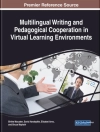‘In an era of accountability, it is all too easy for school leadership initiatives to dehumanize the culture of the educational workplace. Yet Giancola and Hutchison provide an alternative view of school leadership—one that supports a humane dimension which will transform the culture of school leadership, even in the most challenging of times. This book belongs in the hands of every school leader whose goal is to make a difference in the lives of students, teachers, and administrators.’
-Richard and Jo Anne Vacca, Professors Emeriti
Kent State University
‘
Transforming the Culture of School Leadership
is a must-read for teachers and administrators who want to transcend roles so often found in today′s schools–roles that produce noncooperation, mistrust, and isolation between teaching and administrative staff.’
-Jeffrey Harr, Teacher/Curriculum Leader
Stanton Middle School, OH
Compassion leads to cooperation, and personal transformation is the key to lasting school change!
How do successful schools create meaningful change? How can stakeholders improve and impact final decisions in the change process? Lasting organizational improvement and effective leadership blossom in climates of compassion, trust, and productive relationships. The authors describe the key to true organizational transformation in the one-on-one conversations and relationships that take place in a school. Personal transformation, one person at a time, is the key to building a team of educators who are heading in the same direction for the best interests of students, teachers, and administrators. This exploration of the Humane Dimension of school leadership illustrates the lasting effects of transformed school cultures.
Transforming the Culture of School Leadership melds research, theory, and the spiritual aspects of educational leadership to demonstrate how to encourage personal transformation. Giancola and Hutchison draw on a combined 50 years of classroom and school experience to relate their observations about the Humane Dimension including:
- Developing a team before developing a vision
- Creating a climate of win/win consensus building, negotiating, and decision making
- Helping team members become leaders
- Implementing curriculum-driven staff development
Daftar Isi
Foreword by Richard Hawthorne
Preface
Acknowledgments
About the Authors
1. Introduction to the Humane Dimension
2. Humane Dimension Component 1: Communication Based on Trust
3. Humane Dimension Component 2: Empowering Relationships
4. Humane Dimension Component 3: Other-Centered Purpose
5. Humane Dimension Component 4: Personal and Organizational Transformation
6. Elements of a Transformed Leadership Culture
7. Elements of a Transformed Teacher Culture
8. Handling Challenges and Pitfalls
9. Evidence of the Humane Dimension in Schools
Resource A. Staff Development Activities for Component 1: Communication Based on Trust
Resource B. Staff Development Activities for Component 2: Empowering Relationships
Resource C. Staff Development Activities for Component 3: Other-Centered Purpose
Resource D. Staff Development Activities for Component 4: Personal and Organizational Transformation
Resource E. Adventure Education Center: Overview
Resource F. A Generic Process of Procedures for Win/Win
References and Suggested Readings
Index
Tentang Penulis
Janice K. Hutchison has been a classroom teacher for the past 29 years. After graduating from Ohio University with a degree in secondary math, English, and reading, she taught reading for five years in a state institution for incarcerated young men. For the past 25 years, Janice has taught reading and English at Theodore Roosevelt High School in Kent, Ohio, while earning advanced degrees in Education Foundations and Curriculum and Instruction at Kent State University, where she was awarded the degree of Doctor of Philosophy in 1997. Janice now serves as the Coordinator of Staff Development for Kent City Schools and teaches English classes at the high school and graduate classes in Curriculum and Instruction at Kent State. Janice has coauthored the past two editions of Dynamics of Effective Secondary Teaching. She also contributed a chapter, “Maxine Greene and the Current/Future Democratization of Curriculum, ” in William Pinar’s (Ed.) The Passionate Mind of Maxine Greene. Her written work and presentations tend to focus on power relations in school reform and classroom democracy. The Hutchison family consists of Janice and her two children, Cassidy and Mitch, who genuinely explore the alternative conception of power with others in their lives.












